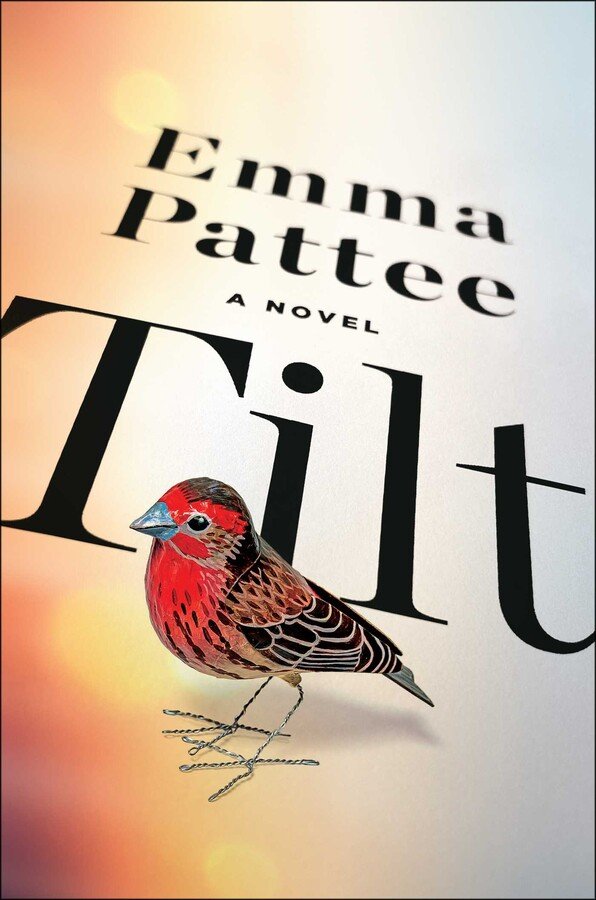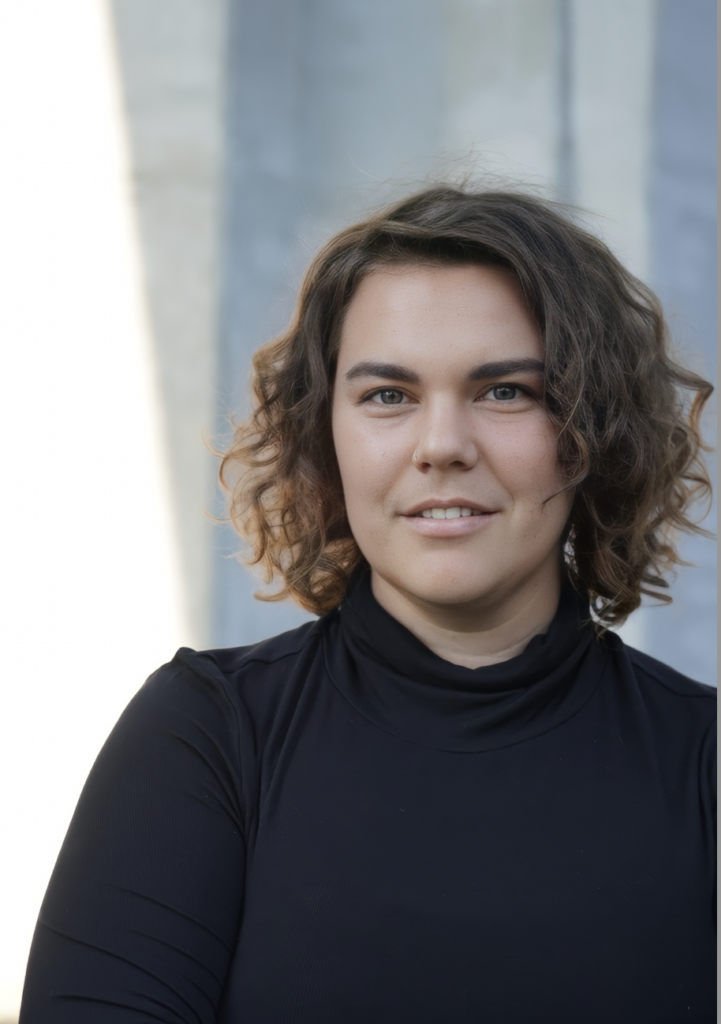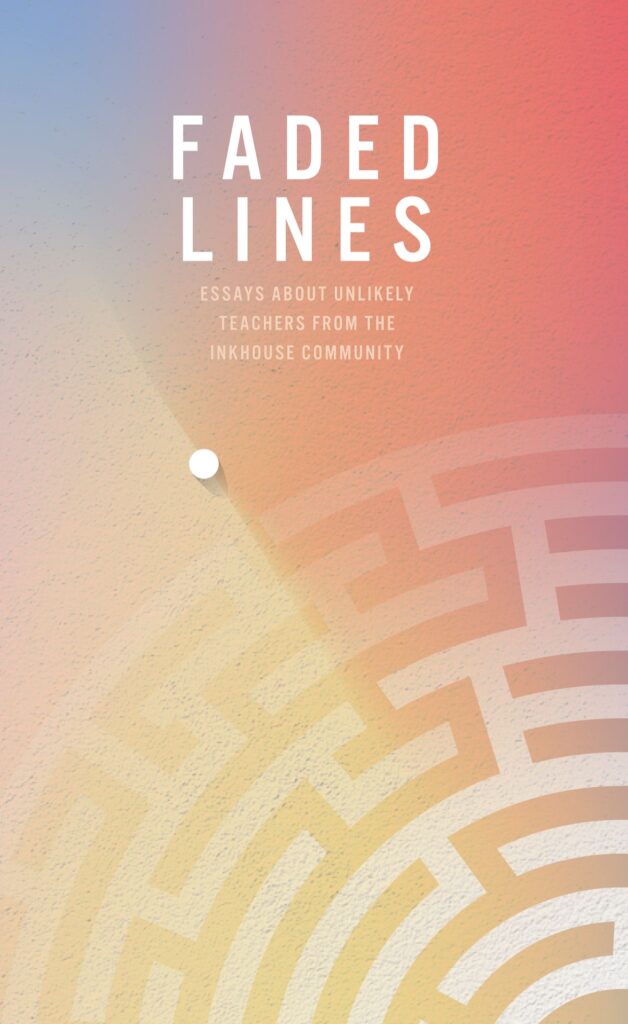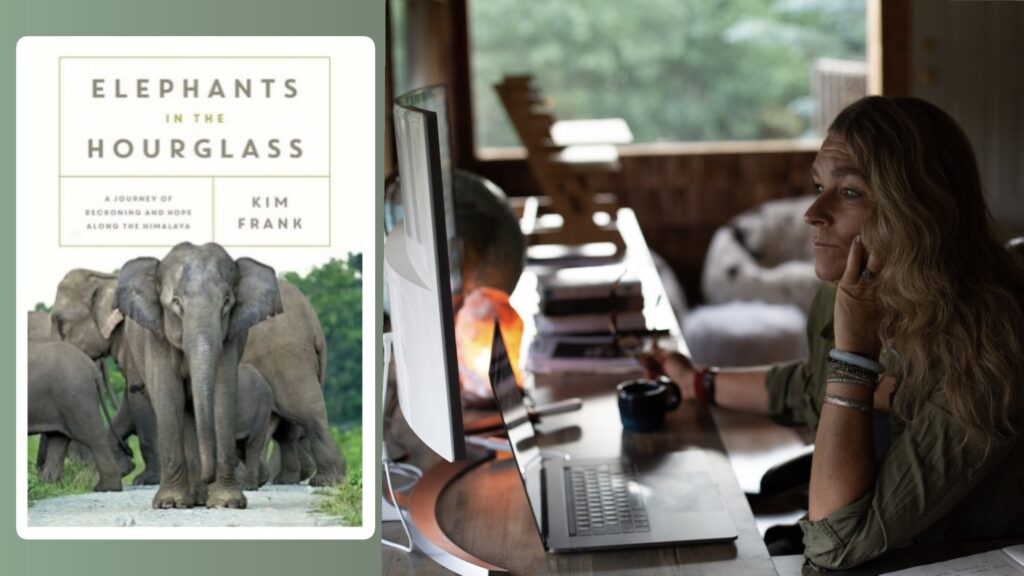We’ve left it open for you, so you don’t even need one of those little keys. Because writing is life, and keeping it real means forgoing the line between the personal and the professional.
Trusting the Process: Emma Pattee
Madison Utley speaks to debut author Emma Pattee following the publication of her novel, Tilt, which is both a New York Times Book Review Editors’ Choice and USA TODAY Bestseller. The two discuss Emma’s dual writing pursuits, what powered her through the four-year process of getting her inaugural book out into the world, and how to know when it’s time to let go.


MU: To start, can you give me an overview of your writing career thus far?
EP: I went to Emerson in Boston. Right after I graduated college, I worked with Stuart. I got so much out of his teaching. In formal writing school, stuff like plot gets talked about in a certain way whereas Stuart brought a fresh, innovative perspective to it. I’m incredibly grateful to have gotten to work with him so early on. When I moved back home to Portland, I continued to write but as my side gig, as I built a career and tried to make money. I got really into journalism and started building a career as a climate journalist. Then, I had an experience in my real life that spawned the idea for this book, Tilt.
MU: What is the relationship between your two very distinct areas of writing–creative fiction and journalism? What do they lend to each other, and how are they different?
EP: I think of them as very separate. Being able to write articles about the climate crisis is an ethical calling for me. Creative writing is more of a lifelong passion.
That said, I take a lot of both into each other. Journalism has taught me not to be precious about writing. People that read news are frequently busy. You have to have a lot of respect for their time and attention span. I think I bring that into my fiction. Fiction often comes from such a self-exploratory, true internal place, that I think it can lack an awareness of how it’s landing for the reader. You can’t think about that too much early on. When I’m writing fiction, I’m trying to process something that’s happening internally for me so it’s a very self-serving exercise. But at some point you do have to ask what a piece of writing actually does for the reader.
But ultimately, at a prose level, journalism is about trying to answer a question that is easily verbalized. I want someone to read the article and, at the end, understand the answer to the question. When someone reads my fiction, there is no crisp answer to a single question. I instead want them to have an emotional experience that transcends words, so that the feeling that is in my body ends up in the reader’s body.
MU: Where did the idea for Tilt come from? Did the genesis of the idea feel different from other creative projects you’ve worked on in the past?
EP: It really did. My book opens with a very pregnant woman at Ikea. She’s shopping for a crib. And then the earthquake hits. In reality, I was also very pregnant and at Ikea when the building started to shake. I thought, “Oh my god, it’s the big earthquake.” It wasn’t. A truck had backed up to the loading dock or something. When the building stopped shaking I was like, “Oh, this is my book.” It was almost fully formed in my mind.
The belief in the project lasted a week, maybe. That was 2019. I sold my book in 2023. In between, I had tons of periods of doubt. There were months and months where I was in despair about the book. People thought the idea was weird. No one really got it. I couldn’t explain it. So yes, there was that moment of inspiration but I think it’s a miracle this book made it out into the world because of the amount of times I gave up on it.
MU: What kept you going for those four years?
EP: I talk about this a lot; for me, it was about community. I have a couple very close friends I meet with every week. They held the belief in me and in the book during the times that I could not. The more I’m in community, the more I’m moving forward. The more I’m alone, the more I’m standing still. (To be honest, that’s the core lesson that my narrator learns in Tilt; it was clearly a lesson I had to learn too).
MU: From the conception of the idea for this book through to earlier today when you had a meeting about TV rights, what has surprised you most during this process?
EP: I wrote a first draft of this book and I was like, “This is not very good.” People reading it were like, “Yeah, meh. Not that good.” Based on that, I thought: Okay, this book idea is a bad idea. It didn’t occur to me: Emma, you’re going to write 15 drafts of this book. Nothing in this draft is going to exist at the end. I didn’t understand that the ideas in the first draft–and the second, third, and fourth–are very separate things.
So the true amount a book changes really surprised me, and the way you have to have commitment to an idea that is almost completely separate from whatever words you have on the page. That was a lesson I will definitely keep with me: to not hold my early drafts that tightly. To be more committed to my idea than I am to a timeline or to a specific draft.
MU: How do you balance that with knowing when you’re done and it’s time to query agents?
EP: That’s an eternal question. You ask if it’s done when you query, but then you ask that question again with your agent about sending it out on submission. Then you ask that question again with your editor when you’re trying to finalize the book. I did not feel like my book was ready to progress at any of those junctures, so I think chasing that feeling of doneness may speak more to perfectionism.
There are definitely people who wait too long, but there are also people who write one draft and they’re like, “This is great! Let’s go out.” I think we need to work against our worse impulses. For the people who write one draft and think they’re done, I’d say they need to write until they can’t stand it anymore. And the people who are inclined to think they have to write 20 drafts before trying to get an agent, they need to send out way sooner than they feel ready.
MU: What final advice do you have for other writers?
EP: For me, consistency and commitment to the idea was more important than my given talent on any day, my writing ability on any day, or how much somebody at a workshop did or didn’t like what I was doing. So talent is enormously important, but it’s really not within our control. What is within our control is our commitment to the project and the consistency with which we show up–literally, with our time–to the project.

 This month, Inkhouse Public Relations debuted its fifth book of employee-authored essays. Entitled
This month, Inkhouse Public Relations debuted its fifth book of employee-authored essays. Entitled 